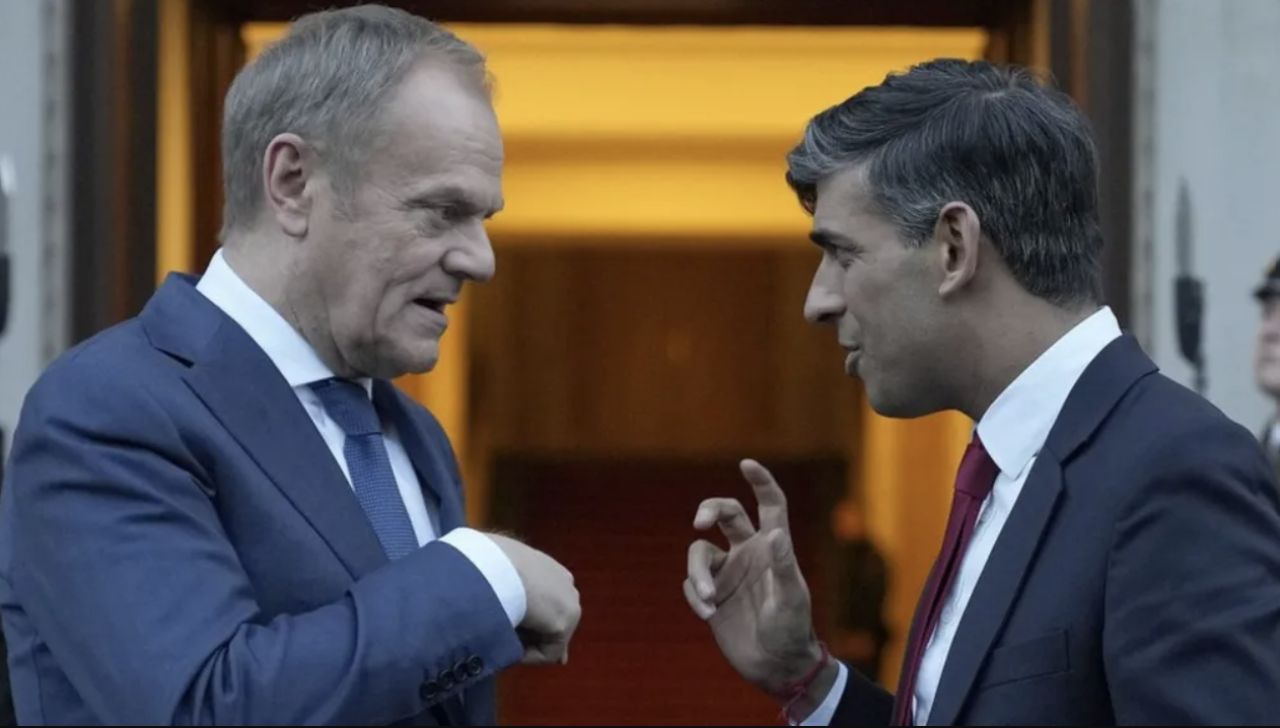On a Polish military base, under the bright spring sun, a tank roars to life, its metal tracks grinding against the concrete as it executes a sharp 90-degree turn.
Wars and conflicts have turned into mere backdrops for the global defense narrative.
The world is facing a collision course with a year of intense political campaigning.
After the Cold War, many western nations enjoyed a peace dividend. With a safer world, the thinking was that funds previously allocated to military might could now flow into healthcare, education, or even tax cuts.
But times have changed.
Conflict brews in the Middle East, and war looms over Europe.
Rishi Sunak made the journey here to meet with his Polish counterpart, Donald Tusk, and NATO Secretary General Jens Stoltenberg.
But he didn't arrive empty-handed. The prime minister came with a bold announcement, one that acknowledges both international threats and domestic political challenges.
And when it comes to making a spending pledge, who better to bring along than Chancellor Jeremy Hunt and Defense Secretary Grant Shapps?
Sunak's plan is ambitious - he aims to increase defense spending to 2.5% of national income by 2030.
The government estimates this will require an additional £75 billion over the next six years, factoring in assumed economic growth.
The prime minister is framing this as a significant boost to defense spending, insisting it's fully funded without increasing borrowing or debt.
Ben Zaranko from the Institute for Fiscal Studies breaks down the numbers and the broader challenges.
The Conservatives assert that they've carefully planned for this increase. A substantial portion of the funds will come from reducing civil service jobs to pre-pandemic levels. Ministers argue that the surge in staff during the pandemic and Brexit is no longer necessary.
Enter Labour, where Keir Starmer has been trying to redefine the party's image by aligning himself with the union flag and emphasizing his support for the armed forces, a stark contrast to Jeremy Corbyn.
However, Labour's commitment to defense spending is less concrete than the Conservatives'.
They've promised to increase it to 2.5% of national income when "resources allow." How will they respond now that the Conservatives have taken the lead?
In the immediate aftermath of the prime minister's announcement, shadow cabinet ministers seemed unsure.
But the fact that the two major parties are engaged in a political arms race over defense spending speaks volumes about the world's current state.
"It has costs to have Russia as a neighbor. There is no way we can run away from that cost. You have to pay. We have to understand that the most expensive alternative is to allow Putin to win in Ukraine because then we will live in a much more dangerous world," the Nato Secretary General remarked to me.
While it's expected for a defense alliance leader to advocate for increased funding, his words carry a weighty reminder.

Login